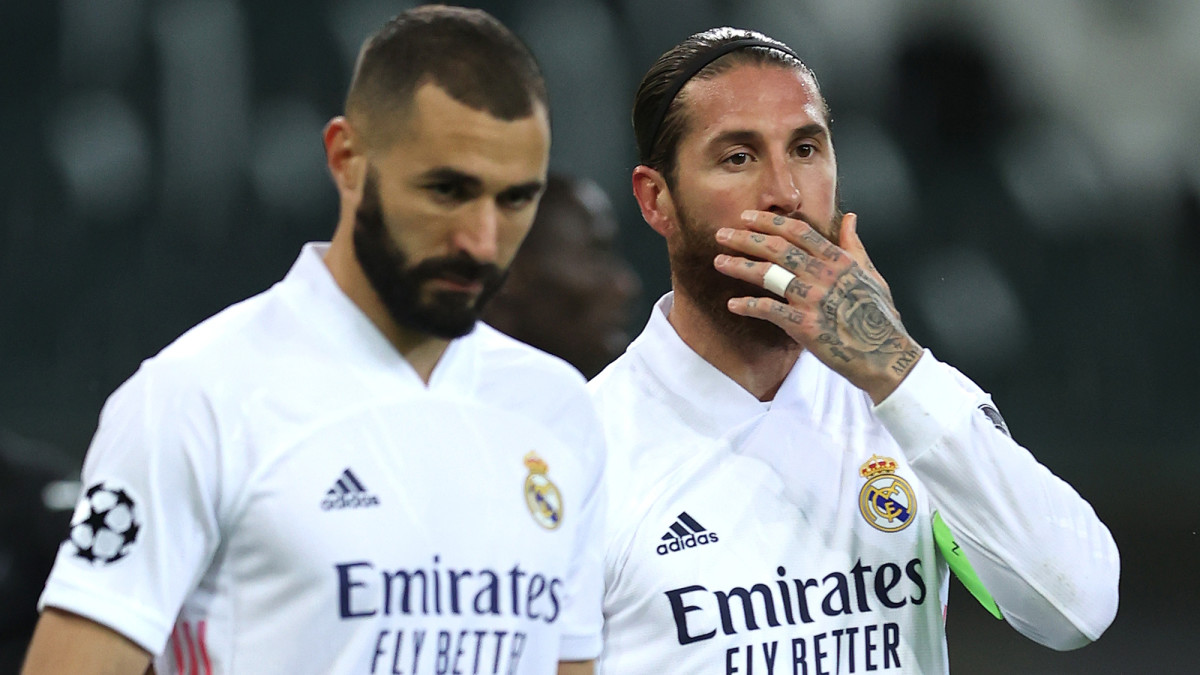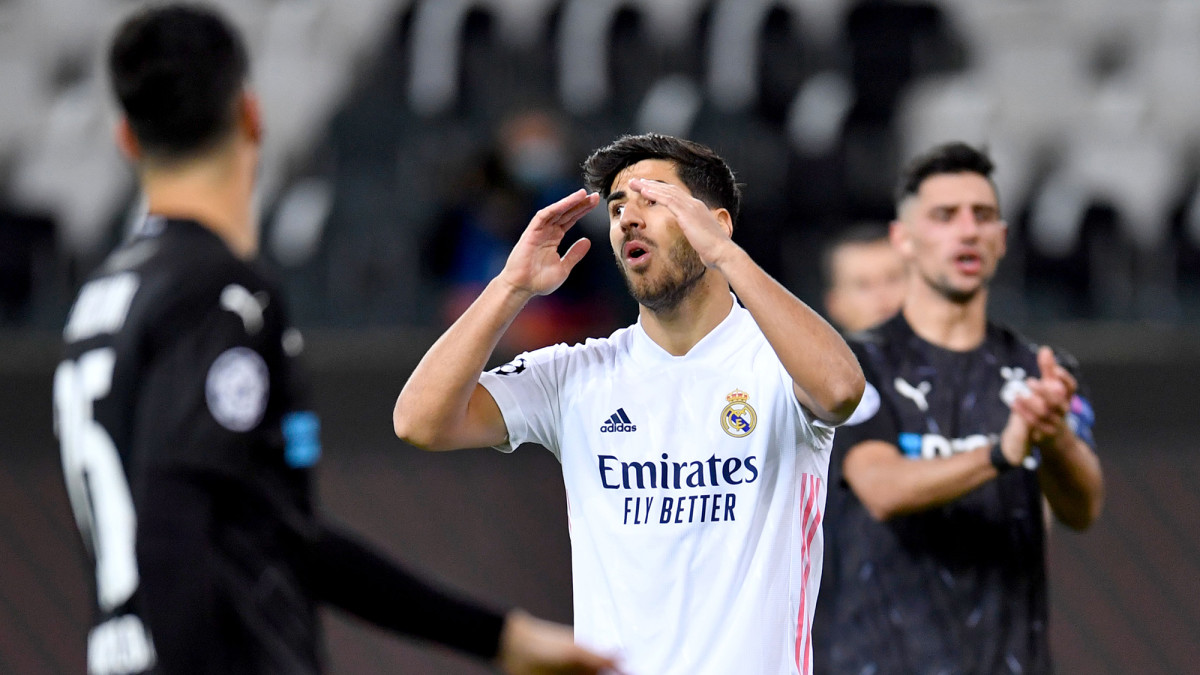Real Madrid Is Walking a Champions League Tightrope
Two very late goals for Real Madrid at Borussia Monchengladbach perhaps staved off any real talk of crisis. Tuesday's 2-2 draw, though, does not tell anything like the whole story: this was a Champions League performance that only magnified the doubts about Zinedine Zidane’s side on another night that seemed to confirm the era of Spanish domination in Europe is over.
A single point from its first two games mean Real Madrid is in serious danger of failing to make it through its Champions League group for the first time since 1997. On every previous occasion, Madrid has been in a group, it has progressed from it. After winning three Champions League titles in a row, Madrid has been eliminated in the last 16 in each of the last two seasons. This time it may not even get that far.
The defeat last week against a second string Shakhtar Donetsk felt freakish, the result of an abysmal first half. But two familiar traits stood out, worryingly: Madrid’s physical timidity and the lethargic nature of much of its attacking. Against Monchengladbach, Madrid again was outmatched both physically and for speed, and again it looked dully predictable going forward. If Madrid’s hope was that victory in Saturday’s Clasico was a sign that all was suddenly well at the club, it was soon dashed. In retrospect, that win perhaps merely highlighted how far Barcelona had fallen. As Barcelona’s president Josep Bartomeu resigned Tuesday with the comment that he and its board had approved the club's involvement in a yet-to-exist European Super League, it was impossible to avoid the thought that you can see why Europe’s elite feel like they need it, if this is how they’re going to play against the team currently sixth in the Bundesliga.

All the familiar problems, all the issues that have beset Real Madrid against Cadiz and then Shakhtar were there again in Germany. Zidane’s side began well enough against an unusually cautious Monchenladbach, and perhaps there was a confidence there in the early stages. But there was a lack of pace and imagination about its play, and the longer the first half wore on, the more comfortable Monchenladbach appeared.
Over the past couple of years, Spanish sides have repeatedly struggled against physically aggressive sides. Whenever Monchenladbach pressed, Madrid looked uneasy, and the opening goal stemmed from Toni Kroos twice being dispossessed in quick succession. Marcus Thuram side-footed home powerfully, but the goal was created by a remarkably precise nutmeg pass from Alassane Plea after Sergio Ramos had been drawn out of the back line to deal, not especially effectively, with a long ball.
Madrid began the second half as it had the first, with a flurry of attacking, and Marcos Asensio, who had been by far its most dangerous player, hit the bar with a bouncing volley.

But the sloppiness remained. As Thuram advanced just before the hour mark, nobody closed him down. Plea’s volley was saved by Thibaut Courtois, but, with Ferlan Mendy loitering lazily by the goal line where he’d been unable to prevent a cross, Thuram was kept onside to tap in the rebound. Only a fine save from Courtois then prevented Plea putting Madrid 3-0 behind for the second Champions League game in a row, and two other fine chances were squandered.
By the final 10 minutes, though, Monchenladbach was exhausted. It had opportunities to break, plenty of them, but weary limbs misplaced passes and weary brains chose the wrong option. At the same time, some sort of muscle memory kicked in for Madrid, and it began to ramp up the pressure. Karim Benzema pulled one back, as Casemiro strained to keep the ball in play with a header beyond the back post. Then, three minutes into injury time, Casemiro slammed in the equalizer as Sergio Ramos headed back across goal for him.
Real Madrid pulls one back! Was the ball out before Casemiro's header back to Karim Benzema?
— SI Soccer (@si_soccer) October 27, 2020
The goal stands, nevertheless. 2-1 Monchengladbach #UCL
(via @TUDNUSA) pic.twitter.com/AlzS1RlAG1
Real Madrid salvages a point with Casemiro's stoppage-time goal! A 2-2 final in Germany #UCL
— SI Soccer (@si_soccer) October 27, 2020
(via @TUDNUSA) pic.twitter.com/9TFb0tuflz
The sense of Spanish decline was intensified by events back in Madrid, where Atletico squeaked an unconvincing 3-2 win over Salzburg thanks to Joao Felix’s second goal five minutes from time. Again though, the Spanish team was rattled by opponents with far fewer resources who looked sharper and smarter. After a 4-0 defeat at Bayern Munich last week, Atletico can at least be relatively confident of progress.
Real Madrid, though, faces Inter in each of its next two games. Antonio Conte’s side had much the better of a 0-0 draw against Shakhtar but, not for the first time, failed to make the most of its domination. Its pressing and pace, though, will trouble Madrid. The cracks the late comeback papered over could very quickly be exposed next week.
